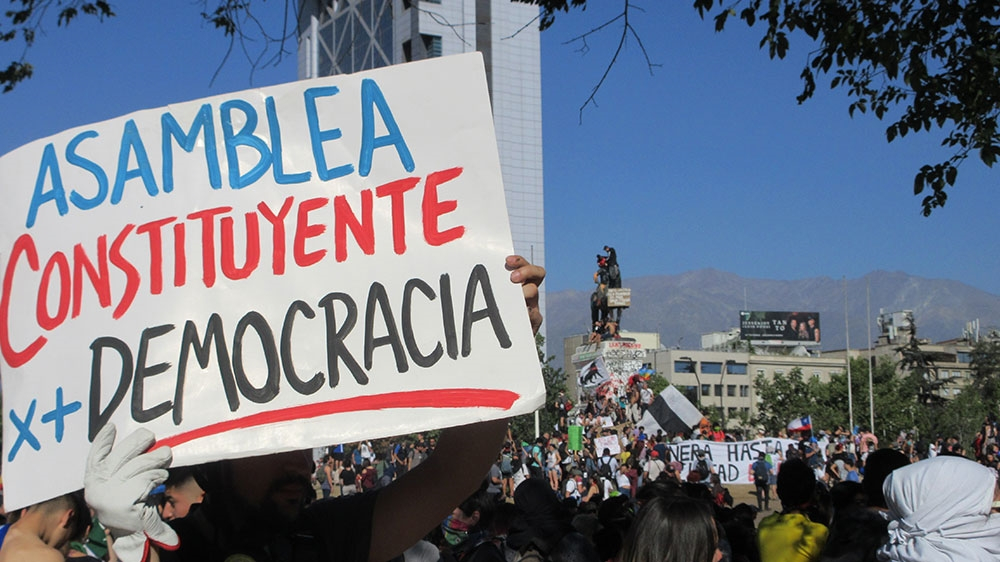The proposed constitution, which has been named by the Guardian as the “world’s most progressive” and the first in the world to be drafted by a special assembly that had gender parity, was rejected in a referendum.

The constitutional proposal, which was rejected in the referendum, consisted of 388 articles, including recognizing the country’s 11 indigenous communities and Chile as a multinational country,. The constitution was named the most progressive as there were proposals to legalize abortion and protect the environment as well as natural resources like water.
The new constitution also aimed to replace the Senate with a less powerful “chamber of regions,” and requiring women to hold at least half of positions in public institutions.
The draft constitution, which was prepared under the leadership of Mapuche progressive leader and academic Elisa Loncon, who was elected as the first speaker of the parliament, was praised for focusing on free education, health and other social rights, environment, gender equality and indigenous rights.
Why did the Chilean people reject ‘one of the world’s most progressive constitutions’?
In the 2020 vote, 80 percent of the Chilean people voted to change the current constitution. So why did this change not happen?
Speaking to Reuters, 54-year-old Rosemarie Williamson and her 85-year-old mother said that although they voted “Yes” in the 2020 referendum, she voted “No” this time because she was against the provisions on “multinationalism” in the new constitution. ” The new constitutional proposal envisaged the definition of Chile as a “multinational” state and the recognition of the rights of the indigenous people, who make up about 13 percent of the population, over their lands and resources.
Monica, living in the capital, Santiago, told AFP: “Chile needs change but not communism, and that’s what this process was aimed at. According to political scientist Pamela Figueroa, the constitutional designation of the country as “multinational” has led to the connotation of the division of the country, and the granting of various rights to the natives led to their perception as a “privileged” group.
Divisions Remain but the Struggle for Rights Continues
Chilean newspaper La Tercera associated the “No” vote with the split in the left. According to the newspaper’s comment, there were actually differences of opinion between the centre and the centre left in the Presidential elections.
However, the Constitutional vote created the most important split between the Christian Democrats and the Socialist Party since 1990s which marked the transition to democracy. The newspaper points out that this distinction is not going to be resolved in a short time.
However, speaking to Financial Times, Andrés Velasco, dean of the School of Public Policy at the London School of Economics (LSE) stated that the process for acquiring rights has already started. He underlined “The representation of women and ethnic minorities is now ensconced in politics, access to abortion will be broadened and gay marriage will remain legal. On values and inclusivity, Chile has moved forward and this will not change.”

